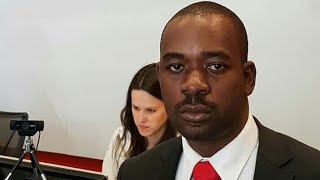By Mapozho Saruchera
The media has lately been awash with reports to the effect that dialogue between the ruling Zanu PF Party and opposition MDC would solve the economic downturn bedeviling Zimbabwe. Proponents of the above school of thought maintain that MDC leader, Nelson Chamisa’s initial refusal to recognize President Emmerson Mnangagwa’s victory allegedly triggered a serious legitimacy issues which had a contagion effect on the economy.
As calls for dialogue grow louder, Chamisa, who was initially against dialogue has of late offered himself for negotiations, allegedly “for the sake of the suffering masses”. He recently took to the micro blogging site Twitter, announcing that, “I’ve met with many on our worsening situation and unbearable suffering. The back-to-school burden, high prices, non-performing economy, joblessness and worthless salaries bring sorrow. On this, I call upon my bro ED to urgent dialogue to solve our politics &economics or it gets worse!”
The questions that must have come to the most perceptive Zimbabweans are – is it true that Chamisa’s refusal to accept the July 2018 presidential results led to the current hiccups in the economy and if so, what exactly is the opposition leader bringing to the negotiating table?
Chamisa made it clear during the 2018 electioneering period that in the event that he lost the election, he would make the country ungovernable – probably in a bid to get into Government through the back door.
The MDC leader took his supporters for a ride; he knew he was not going to win the 2018 presidential election – the 5 months, between the death of Morgan Tsvangirai and the election, was not enough time for him to have fully organized his party for an election victory. A fact confirmed by the MDC’s failure to even field the required number of polling agents. Secondly, he was facing a stronger contender for the presidency in President Mnangagwa – a man who had rejuvenated his party and captivated the imagination of the country. All this go on to explain why, Chamisa, a lawyer by profession, brought a half barked case to the Constitutional Court – he had no evidence, there was none in fact, he lost fair and square!
The opposition had a secret weapon though, the Zimbabwe Democracy Recovery Act (ZIDERA)! Remember how he and Tendai Biti went to the United States of America (USA), a few months before elections and begged for the extension of the sanctions that had been imposed on Zimbabwe in 2001. That was an alternative plan; the US had to keep Zimbabwe’s economy screaming, so that the opposition would remain viable. The MDC thrives on people’s hardships and in this case they simple ensured that the hardships are compounded, with the help of Biti’s friends.
So, it can be safely concluded that Chamisa thinks that the removal of sanctions, which he begged for in the first place, is his leverage at the negotiations with President Mnangagwa. The problem is Chamisa cannot guarantee the removal of sanctions. In politics there are no permanent friends, but interests. It therefore boils down to who is dearer to the Americans, Chamisa or Biti (ironically called "friend" by the Committee on Foreign Relations subcommittee on Africa). And this is where it is going to get interesting – the boomerang effect from the sanctions move is going to be spectacular. Already there are rumors that some MDC structures are disgruntled with Chamisa’s leadership. They blame him for the party’s poor show, especially in the last parliamentary election. It’s a matter of time before the Americans throw their weight behind Biti by giving the latter power to signal when sanctions can be added.
The long and short of it is that Chamisa has nothing to offer. He might have told fairy tales of trucks full of foreign currency at the country’s borders or of a promise by United State President, Donald Trump, to avail US$15 billion in the event that they had won the last election – these remain just that, fairy tales.
As for the way forward, President Mnangagwa has made it clear that there is no need to talk to losers. Chamisa cannot be rewarded for bringing suffering to the people of Zimbabwe. The suffering he is pretending to have seen now is a result of the sanctions and nothing else. The Government is working hard to reign in the budget deficit and for the first time in decades the country recently recorded a budget surplus – there is indeed light at the end of the tunnel.




